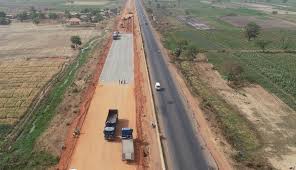The Federal Executive Council (FEC) has approved a significant cost reduction for the rehabilitation of the Abuja-Kaduna-Zaria-Kano Road project, bringing the total to approximately N740.79 billion. This decision was made during a meeting held in Abuja, presided over by President Bola Tinubu.

Julius Berger, the construction company already managing the project, will continue its work under the revised plan, which now includes the installation of solar-powered streetlights. The project has a new completion deadline of 14 months.
Bayo Onanuga, the Special Adviser on Information and Strategy to the President, shared the news via a statement on X (formerly Twitter). He noted, “The council approved the rescoping and downward review of the contract to rehabilitate the Abuja-Kaduna-Zaria-Kano dual carriageway at a lower cost of N740.79 billion. The inclusion of solar lights is aimed at improving visibility and security along the route, especially at night.”
This move is part of the government’s broader strategy to optimize resources while enhancing road safety and infrastructure. The Abuja-Kaduna-Zaria-Kano route is vital for transporting agricultural products from the northern regions of Nigeria to other areas, thereby playing a crucial role in the economy.
Originally approved by the previous administration in 2017, the project aimed to improve the connectivity between Abuja, Kaduna, and Kano states. Work officially commenced in May 2018, with Julius Berger awarded the contract. By January 2021, significant progress had been reported, with expectations that the project would be completed before the end of the former administration. However, these deadlines were not met, and the road remained incomplete when the administration ended in 2023.
In late 2023, the new Minister of Works, Dave Umahi, revealed that the previous government had accumulated a debt of N1.5 trillion related to ongoing road projects, including the Abuja-Kaduna-Zaria-Kano rehabilitation. To address this, additional funding was allocated at the start of 2024, with N17 billion already released and another N33 billion expected to ensure the project remains adequately financed.
During an August 2024 meeting with Julius Berger, the Federal Government committed to providing N20 billion monthly for the completion of the dualization of 164 kilometers of the highway. The Works Minister instructed that one carriageway be completed at a time and that both sides be filled and leveled with a stone base within three weeks to minimize disruption for road users.
This latest development reflects the government’s commitment to improving Nigeria’s road infrastructure, which is essential for economic growth and public safety. The addition of solar-powered streetlights is expected to enhance security along the route, addressing concerns about nighttime visibility.
As the project progresses, stakeholders and citizens alike will be watching closely to see if the new timelines and funding commitments will lead to the timely completion of this critical infrastructure project.



